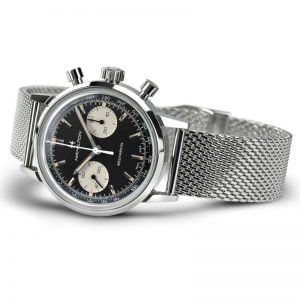
How to Avoid Lagging Behind, Rushing, or Stopping of Your Watch?
We live so fast that the saying “Time doesn’t wait” is about us. But sometimes the minutes run too fast on a wristwatch. Sometimes, favourite and reliable chronometers show tricks, and even expensive Swiss models are lagging behind or in a hurry. Yes, this also happens with branded accessories. The problem may be associated not only with the quality of the thing or workmanship but also with the peculiarities of operation. What to do? Learn from this article.
The time speed can be disrupted due to a fall or rough impact, untimely lubrication or replacement of batteries, exposure to a magnetic field, or other reasons. In other words, internal mechanics is a rather subtle and fastidious thing that lends itself to external influences. Although, over the past decades, the quality of protection of the watch’s mechanical “heart” has improved significantly.
Why mechanical watches don’t run and stop?
The most common and obvious reason for stopping is simple forgetfulness. The owners forget to start the mechanism. Especially after weekends or holidays, or if multiple pairs of accessories are in use.
There are other reasons why mechanical watches sometimes stop. Among them are the following.
Dust, dirt, or even moisture has accumulated in the interior, between the parts. This happens with both conventional and waterproof housings in the event of a leak. The accumulated sediment mechanically interferes with the work.
Parts of the structure are rusted or frayed by sand. This reason is a derivative of the previous one.
When the watch starts but does not run, it is most likely a breakdown, only a master will help. And if a cracking sound is heard at the factory, it is likely that the winding wheel is broken or worn out.

Issues with self-winding models
If such a mechanical watch stops or slows down intermittently, there may be a problem with the self-winding system. But if they stopped at night, most likely, the owner wore them during the day not enough time. You can focus on the following indicators.
For the mechanism to start normally, you need to wear a self-winding model for at least 8 hours in a row.
A full “charge” is enough for 3-4 days of work.
In this category, there are models that can be wound manually (they have a crown), and which cannot. The latter needs to be worn a little on the wrist for the self-winding system to start. Both options are good, just keep that in mind.
That is, first of all, check if the winding mechanism is enough, wear the accessory after lying down. If it doesn’t work out and the problem lies elsewhere, its reasons will be the same as for manual-winding models.
Why do quartz watches stop?
The most obvious reason is that the battery is running out or has run out. When its resources are scarce, quartz walkers can run slower. If it stops for no apparent reason, check the battery.
A regular battery lasts 2-3 years. There are chronometers that consume little energy; they can even work for 5-10 years on one battery. But it is also not infinite.

Salvation from many problems – caution and timely service Every watch owner wants them to work long after purchase. As we have already found out, there are three main causes of problems: aging, getting wet and getting dirty.
If your main problem is not to fix but get a watch then the solution is simple, visit the WatchShop website.
WANT TO RECEIVE PERSONAL, STYLISH SUGGESTIONS TO YOUR EMAIL?
FILL OUT THE FOLLOWING FORM: